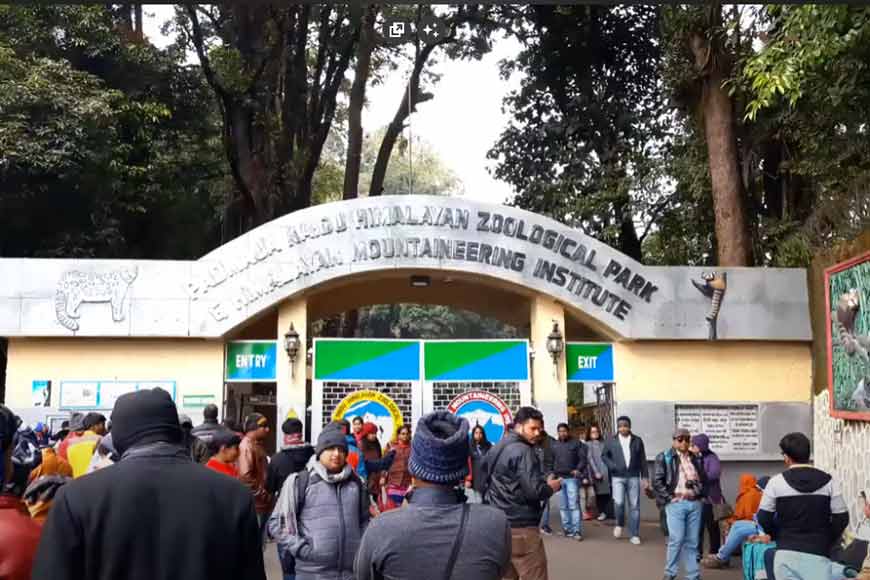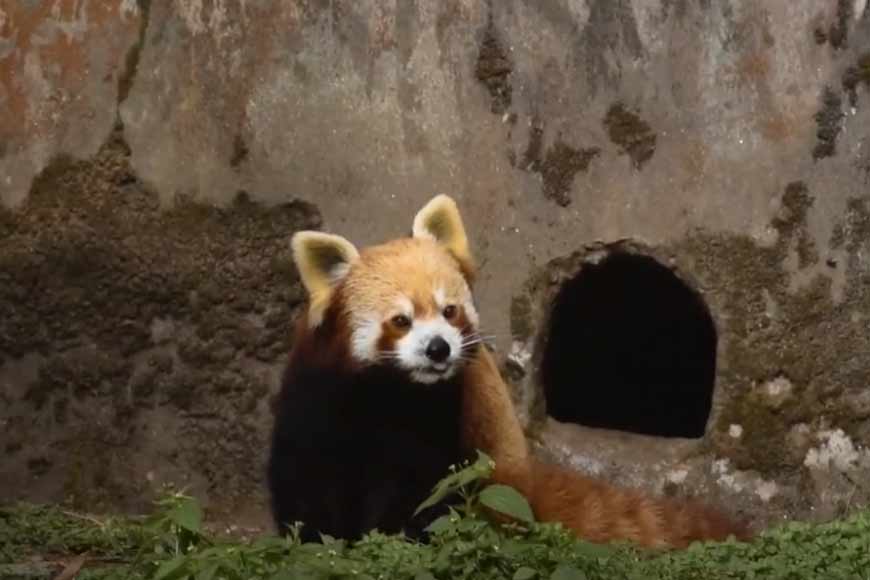Padmaja Naidu Himalayan Zoological Park: A Beacon of Himalayan Wildlife Conservation - GetBengal Story

The Padmaja Naidu Himalayan Zoological Park (PNHZP), popularly known as the Darjeeling Zoo, stands as a sanctuary not just for animals, but also for those who cherish nature, wildlife, and conservation. It is situated in the charming hills of Darjeeling, West Bengal. Since its founding in 1958, this venerable organization has grown to become a major player in high-altitude species research, education, and wildlife conservation.

The Padmaja Naidu Himalayan Zoological Park is a beacon of hope for many endangered species of the Himalayas. The zoo has seen remarkable success in increasing the numbers of endangered species, including the Himalayan wolf, red panda, snow leopard, high-altitude herbivores, and pheasants, through coordinated efforts on captive breeding programmes. PNHZP provides tourists with the rare chance to witness these awe-inspiring animals against the picturesque backdrop of Darjeeling's mountains and valleys.
The zoo’s commitment to creating naturalistic enclosures and promoting animal welfare has positioned it as a leader in ethical and sustainable wildlife tourism. Based on the Central Zoo Authority's (CZA) Monitoring Effectiveness Evaluation, PNHZP was recognized for its outstanding conservation efforts and ranked first in India across all zoo categories. The Red Panda Augmentation Program in Singalila National Park, which was carried out in collaboration with the West Bengal Wildlife Wing, is PNHZP's most notable contribution.

The initiative focuses on increasing the wild population and genetic diversity of the endangered red panda, a species that symbolizes the fragile ecosystem of the Eastern Himalayas. Meanwhile, the zoo’s Snow Leopard Conservation Breeding Programme is considered among the most successful in the world. According to the World Association of Zoos and Aquariums (WAZA), PNHZP currently holds the highest captive population of snow leopards globally.
In a groundbreaking move, PNHZP has also become the only zoo in India to house Siberian tigers, after welcoming a pair named Lara and Akamas from Cyprus under an international animal exchange programme. PNHZP established the first Biobanking and Genetic Resource Facility in India as part of its mission to guide conservation by science.
PNHZP launched India's first Biobanking and Genetic Resource Facility as part of its mission to drive conservation through science.
This high-tech programme aims to preserve gametes, tissues, and genetic material of endangered Himalayan species. Besides breeding and research efforts, the zoo also focuses on community outreach and education.

Through participatory workshops, school and college visits, and awareness campaigns, PNHZP instils a strong conservation ethic among the local population and tourists, with a focus on the need to conserve the fragile Himalayan ecosystem.
In a historic achievement, the Padmaja Naidu Himalayan Zoological Park was shortlisted as one of the top three finalists for the 2024 WAZA Conservation & Environmental Sustainability Awards. This is the first time an Indian zoo has received this high-profile international nomination. The award was declared at the 79th WAZA Annual Conference in Sydney, Australia, in November 2024.

The Forest Department of West Bengal invites all citizens and nature lovers to visit the Padmaja Naidu Himalayan Zoological Park and witness the incredible efforts being made to protect our planet’s most vulnerable wildlife—and become a part of this inspiring journey toward a more sustainable and compassionate world.
Padmaja Naidu Himalayan Zoological Park is not just a zoo. It is a vision for the future, where conservation, education, and love for nature come together to make a lasting impact.










